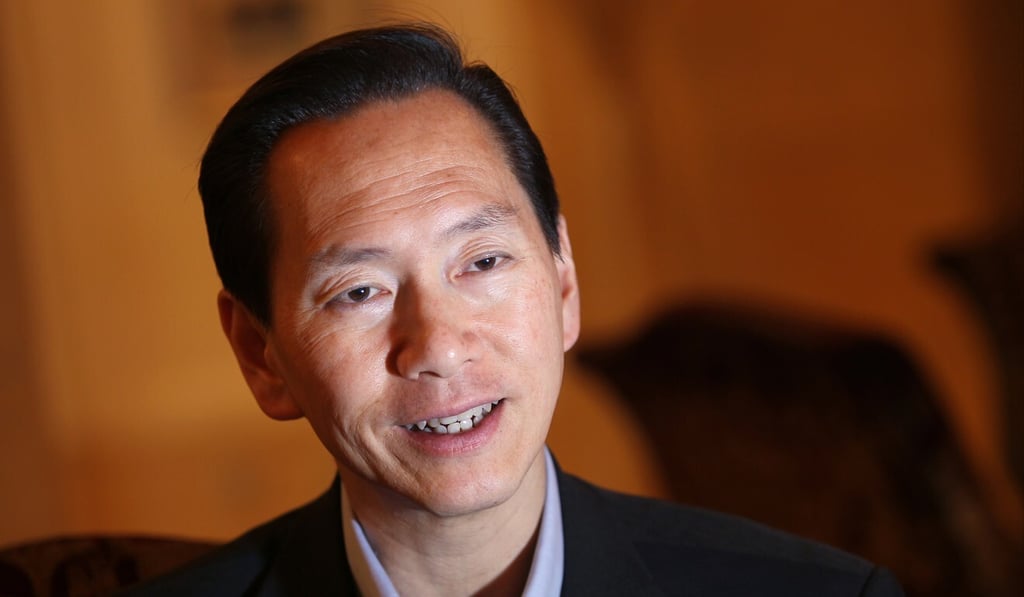Advertisement
Row between Hong Kong leader Carrie Lam and ex-chief CY Leung deepens as top adviser weighs in on issue of elections
- Dispute erupted after former chief executive Leung Chun-ying told a media outlet it would still be lawful if leader was picked without an election
- Wading into the controversy, Executive Council convenor Bernard Chan pours scorn on suggestion, which Lam had also dismissed earlier
Reading Time:3 minutes
Why you can trust SCMP
18

A row between a former Hong Kong leader and the current administration intensified on Wednesday as a leading government adviser weighed in on the heated political reform debate, insisting the city’s chief executive should be picked through elections.
The dispute erupted on Monday when former chief executive Leung Chun-ying told a media outlet that it would still be lawful if the city’s next leader was chosen without an election. Incumbent leader Carrie Lam Cheng Yuet-ngor dismissed the idea the following day.
Wading into the controversy sparked by the sparring between Leung and Lam, her chief adviser Bernard Chan, convenor of the Executive Council, also poured scorn on the idea.
Advertisement
“Chief executives picked through elections will enjoy greater legitimacy. The arrangement should not be changed lightly,” said Chan, also a delegate to the National People’s Congress.

Advertisement
He believed such a drastic change was unlikely to happen given all of the city’s leaders were picked via elections since 1997, when the city returned from British to Chinese rule. Chan added that it also required discussion in society.
Advertisement
Select Voice
Choose your listening speed
Get through articles 2x faster
1.25x
250 WPM
Slow
Average
Fast
1.25x